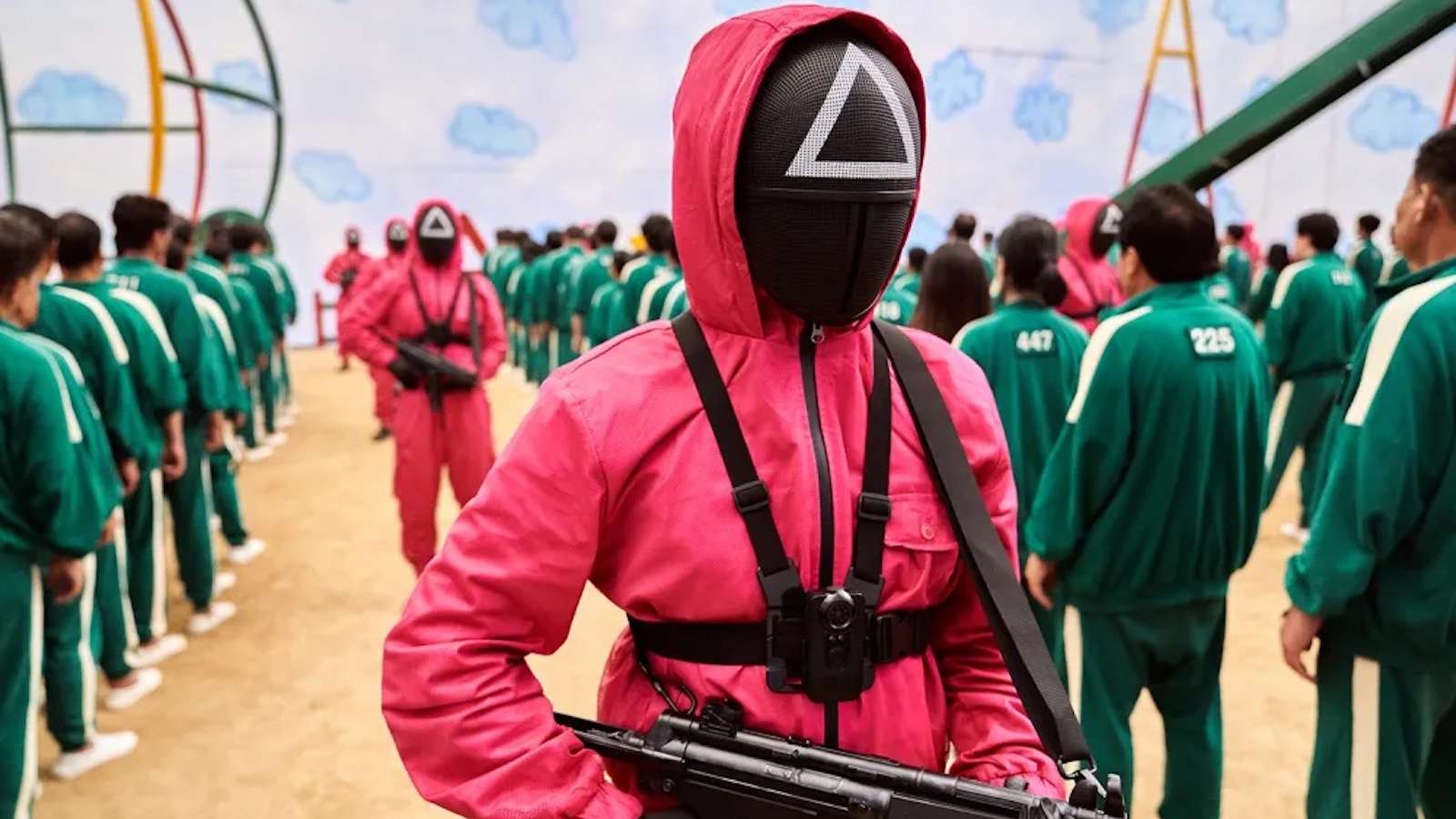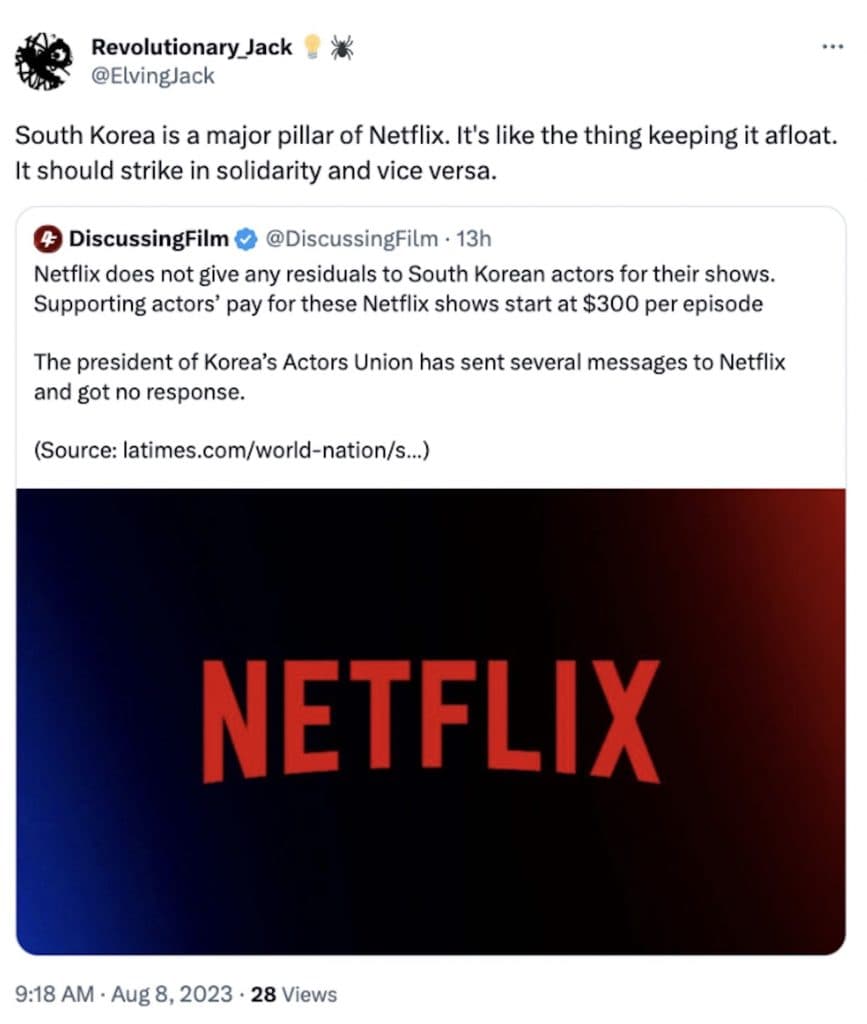Netflix slammed for not paying South Korean actors any residuals
 Netflix
NetflixNetflix has been slammed for not paying actors from South Korea any residuals, an issue that is pertinent amid the ongoing Hollywood actors strike.
The American writers and actors unions are currently on strike, one of the key issues relating to residuals – aka payments to those who worked on movies and shows for reruns and other airings.
These have dipped with the rise of streaming platforms, and the unions have had enough. Currently, they are in a standoff against the major Hollywood studios in a bid to fight for fairer pay in the streaming era.
While much of the focus has been on creatives in the US, a new report suggests the same situation is unfolding in South Korea, a country that has produced some of Netflix’s biggest success stories, from Squid Game to Kill Boksoon.
Netflix slammed for not paying South Korean actors any residuals
An investigative report from the LA Times discovered that while South Korean actors appearing in Netflix originals are fighting for better pay, the streamer refuses to meet with their union.
Song Chang-gon, an actor and president of the Korea Broadcasting Actors Union, told the publication that he’s been trying to get hold of the firm’s bosses in order to raise the issue that it didn’t pay South Korean actors residuals.
“One of their first priorities when entering the local market should be to establish some channel of communication with groups like us,” he said. “But there’s no answer at all.”
 Twitter/@ElvingJack
Twitter/@ElvingJackWhile many local TV networks follow the same outsourcing model as Netflix, they continue to liaise and work with unions – the same can’t be said for the streaming giant.
Kim Ju-ho, secretary-general of the rights association, told the LA Times: “A precondition for that conversation about residuals was Netflix’s business successfully taking off here… Netflix has made a lot of money from South Korean content. It’s now time to meet.”
While Netflix pumps a lot of money into South Korean content, “the problem is that Netflix’s big production budgets aren’t evenly distributed – most of this money goes to the star actors or big-name screenwriters,” said Song.
The outlet highlights the major pay disparity, with A-listers and big names earning up to $400,000 an episode, while supporting actors, who also receive no residuals, start at around $300 per episode.
What’s more, the work is a lot more labor intensive, and the shows don’t run for as long as K-Dramas – meaning the payout is significantly less. “Actors are still expected to show up for however many shoots it takes to film one episode without enough additional compensation,” Song said.
Netflix has responded to the allegations, sharing a statement with the LA TImes that reads: “We ensure supporting actors are compensated at or above local wage standards, and we work closely with our production partners to ensure all parties are committed to the fair compensation and treatment of actors.”
But the case is ongoing, with Song wondering whether the South Korean union should show solidarity with SAG-AFTRA and vice-versa. “It would be helpful for similar organizations representing actors around the world to engage with one another, to build up a sense of solidarity. I think that’s important.”
You can read more about the WGA strike here, and the SAG-AFTRA strike here.



